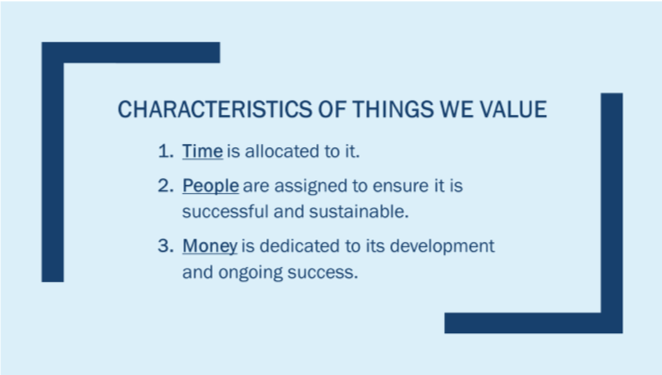- Psychedelic Justice: Creating a Socially Just Psychedelic Renaissance - August 16, 2021
- Hate & Social Media in Psychedelic Spaces - November 5, 2020
- Ensuring Psychedelic Liberty in Black and Brown Communities: Questions to Ponder - April 16, 2020
You Say You Value Diversity, Here’s How to Prove It
Organizational leaders often claim that they value diversity but provide little evidence that equity, access, and inclusion are a priority.
When organizations value something, they dedicate time to its implementation, place top people to the task, and they invest money to ensure its success.
Therefore, if an organization values diversity, equity, and access, then its leadership will ensure that time is available for related programming, training, and outreach. If they host a conference, they will ensure space is reserved for this programming, solicit experts in these areas, evaluate the proportion of time available for these topics, and highlight those presentations.

When we look at psychedelic science and associated organizations, it is hard to make the case that they truly value diversity, equity, access, and inclusion. While individuals in these organizations may hold these are core values, examining how the larger organization functions often reveals misaligned values and priorities. It is far easier to make general claims than it is to move forward with concrete actions. To bridge that gap, this article offers specific organizational strategies for increasing inclusion and access in psychedelic science.
Tips for moving from claiming you want to be inclusive to actually being inclusive:
- Center events about diversity around diverse people! [Seems obvious, but sadly, there have been diversity-related events without a single person of color on the panel.]
- Have people of color involved in all events, not just those about diversity, and position people of color in influential roles, such as the planning committee.
- Include sufficient numbers of diverse people so they have influence, power, and community. When there are only one or two people representing diverse groups, they often lack sufficient power to influence others or create change.
- Create scholarships and volunteer programs for those with limited means to reduce the costs of attending events.
- Invite talks addressing diversity, equity, and inclusion and select keynote and invited speakers with diverse racial and ethnic backgrounds (for diversity and non-diversity related topics). If you do not know who to invite, look through this list, “People of Color Making a Difference in Psychedelic Healing.”
- Pay people of color for their time and work; do not expect them to donate their time and expertise. See “Why Psychedelic Science Should Pay Speakers and Trainers of Color.”
- Name awards after diverse people in the field. Have awards that honor diversity and inclusion-related work. Review award recipients to ensure diverse people are recognized.
- Learn about the organizational benefits of diversity and use these benefits to realign organizational practices and procedures.
- Make an honest assessment of the actions the organization has taken to ensure diversity, equity, and access and review evidence of its effectiveness.
- Set organizational goals for diversity, equity, and inclusion. Review these goals regularly and adjust accordingly.
- Collect data on the diversity of your membership, conference attendees, and the organization’s leadership. Which groups are represented and which are missing? Be accountable to bringing in those groups that are absent.
- Create spaces for ongoing dialogue, discussion, evaluation, and change to ensure current efforts are having the desired effects and to stay ahead of changing needs over time.
- Survey constituents, ask about diversity and inclusion, and be responsive to their responses.
In the above steps, I use people of color as my example, but diversity and inclusion goes beyond race and ethnicity. Reflections on each of these steps should cycle through a variety of social identity groups (e.g., LGBTQIA+, individuals with limited financial means, those with physical limitations) to determine if the stated values of equity and inclusion align with the organization’s actual practices. Wherever there is a gap, work to fill it.
Social justice is at the foundation of psychedelic science—we can no longer claim to value diversity, equity, access, and inclusion. It’s time to prove it.
Art by Mariom Luna.
Take a minute to browse our stock:
Did you enjoy reading this article?
Please support Chacruna's work by donating to us. We are an independent organization and we offer free education and advocacy for psychedelic plant medicines. We are a team of dedicated volunteers!
Can you help Chacruna advance cultural understanding around these substances?
















